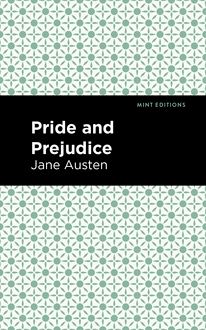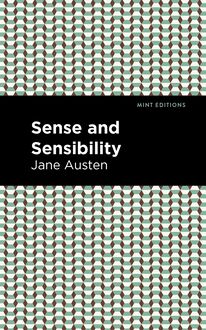-
 Univers
Univers
-
 Ebooks
Ebooks
-
 Livres audio
Livres audio
-
 Presse
Presse
-
 Podcasts
Podcasts
-
 BD
BD
-
 Documents
Documents
-
- Cours
- Révisions
- Ressources pédagogiques
- Sciences de l’éducation
- Manuels scolaires
- Langues
- Travaux de classe
- Annales de BEP
- Etudes supérieures
- Maternelle et primaire
- Fiches de lecture
- Orientation scolaire
- Méthodologie
- Corrigés de devoir
- Annales d’examens et concours
- Annales du bac
- Annales du brevet
- Rapports de stage
La lecture à portée de main

Vous pourrez modifier la taille du texte de cet ouvrage
Découvre YouScribe en t'inscrivant gratuitement
Je m'inscrisDécouvre YouScribe en t'inscrivant gratuitement
Je m'inscrisEn savoir plus
Vous pourrez modifier la taille du texte de cet ouvrage
En savoir plus

Description
When a man’s childhood friend has been murdered, he travels to Austria to confront the mischievous figure whose betrayal ultimately led to his horrific death. This is a classic revenge tale that develops into a tumultuous love story. Morrice Buckler is a young man studying in Holland when he receives a disturbing message. His childhood friend, who was in dire straits, is executed for aiding two rebels. Morrice is driven by revenge and eager to find Count Lukstein, the man responsible for his friend’s capture and death. Morrice fully intends to make him pay for his actions with his life. Despite their animosity, Morrice is also drawn to the Count’s beautiful wife, whom he engages in an unconventional courtship. The Courtship of Morrice Buckler: A Romance is full of adventure and revenge. It has an exciting narrative with similar themes found in Mason’s other books such as The Four Feathers and Fire Over England With an eye-catching new cover, and professionally typeset manuscript, this edition of The Courtship of Morrice Buckler: A Romance is both modern and readable.
Sujets
Informations
| Publié par | Mint Editions |
| Date de parution | 14 mai 2021 |
| Nombre de lectures | 0 |
| EAN13 | 9781513286303 |
| Langue | English |
| Poids de l'ouvrage | 1 Mo |
Informations légales : prix de location à la page 0,0500€. Cette information est donnée uniquement à titre indicatif conformément à la législation en vigueur.
Extrait
The Courtship of Morrice Buckler
A Romance
A.E.W. Mason
The Courtship of Morrice Buckler: A Romance was first published in 1896.
This edition published by Mint Editions 2021.
ISBN 9781513281285 | E-ISBN 9781513286303
Published by Mint Editions®
minteditionbooks.com
Publishing Director: Jennifer Newens
Design & Production: Rachel Lopez Metzger
Project Manager: Micaela Clark
Typesetting: Westchester Publishing Services
C ONTENTS I. T ELLS OF AN I NTERRUPTED M ESSAGE II. I R EACH L ONDON , AND THERE M AKE AN A CQUAINTANCE III. T ELLS H OW I R EACH B RISTOL , AND IN W HAT S TRANGE G UISE I G O TO M EET M Y F RIEND IV. S IR J ULIAN H ARNWOOD V. I J OURNEY TO THE T YROL AND HAVE S OME D ISCOURSE WITH C OUNT L UKSTEIN VI. S WORDS T AKE U P THE D ISCOURSE VII. I R ETURN H OME AND H EAR N EWS OF C OUNTESS L UKSTEIN VIII. I M AKE A B OW TO C OUNTESS L UKSTEIN IX. I R ENEW AN A CQUAINTANCESHIP X. D OUBTS , P ERPLEXITIES , AND A C OMPROMISE XI. T HE C OUNTESS E XPLAINS , AND S HOWS M E A P ICTURE XII. L ADY T RACY XIII. C OUNTESS L UKSTEIN IS C ONVINCED XIV. A G AME OF H IDE - AND -S EEK XV. T HE H ALF - WAY H OUSE A GAIN XVI. C ONCERNING AN I NVITATION AND A L OCKED D OOR XVII. F ATHER S PAUR XVIII. A T L UKSTEIN XIX. I N THE P AVILION . I E XPLAIN XX. I N THE P AVILION . C OUNTESS L UKSTEIN E XPLAINS XXI. I N C APTIVITY H OLLOW XXII. A T ALK WITH O TTO . I E SCAPE TO I NNSPRUCK XXIII. T HE L AST
I
T ELLS OF AN I NTERRUPTED M ESSAGE
I t chanced that as I was shifting the volumes in my library this morning, more from sheer fatigue of idleness than with any set intention—for, alas! this long time since I have lost the savour of books—a little Elzevir copy of Horace fell from the back of a shelf between my hands. It lay in my palm, soiled and faded with the dust of twenty years; and as I swept clean its cover and the edges of the leaves, the look and feel of it unlocked my mind to such an inrush of glistening memories that I seemed to be sweeping those years and the overlay of their experience from off my consciousness. I lived again in that brief but eventful period which laid upon the unaccustomed shoulders of a bookish student a heavy burden of deeds, but gave him in compensation wherewith to reckon the burden light.
The book fell open of its own accord at the Palinodia at Tyndaridem. On the stained and fingered leaf facing the ode I could still decipher the plan of Lukstein Castle, and as I gazed, that blurred outline filled until it became a picture. I looked into the book as into a magician’s crystal. The great angle of the building, the level row of windows, the red roofs of the turrets, the terrace, and the little pinewood pavilion, all were clearly limned before my eyes, and were overswept by changing waves of colour. I saw the Castle as on the first occasion of my coming, hung disconsolately on a hillside in a far-away corner of the Tyrol, a black stain upon a sloping wilderness of snow; I saw it again under a waning moon in the stern silence of a frosty night, as each window grew angry with a tossing glare of links; but chiefly I saw it as when I rode thither on my last memorable visit, sleeping peacefully above the cornfields in the droning sabbath of a summer afternoon. I turned my eyes to the ode. The score of my pencil was visible against the last verse:
Nunc ego mitibus
Mutare quæro tristia dum mihi
Fias recantatis amica
Opprobriis animumque reddas.
On the margin beside the first line was the date, Sept. 14, 1685, and beneath the verse yet another date, Sept. 12, 1687. And as I looked, it came upon me that I would set down with what clearness I might the record of those two years, in the hope that my memories might warm and cheer these later days of loneliness, much as the afterglow lingers purple on yonder summit rocks when the sun has already sunk behind the Cumberland fells. For indeed that short interspace of time shines out in my remembrance like a thick thread of gold in a woof of homespun. I would not, however, be understood to therefore deprecate the quiet years of happiness which followed. The two years of which I speak in their actual passage occasioned me more anxiety and suffering than happiness. But they have a history of their own. They mark out a portion of my life whereof the two dates in my Horace were the beginning and the end, and the verse between the dates, strangely enough, its best epitome.
It was, then, the fourteenth day of September, 1685, and the time a few minutes past noon. Jack Larke, my fellow-student at the University of Leyden, and myself had but just returned to our lodging in that street of the town which they call the Pape-Graft. We were both fairly wearied, for the weather was drowsy and hot, and one had little stomach for the Magnificus Professor, the more particularly when he discoursed concerning the natural philosophy of Pliny.
“’Tis all lies, every jot of it!” cried Larke. “If I wrote such nonsense I should be whipped for a heretic. And yet I must sit there and listen and take notes until my brain reels.”
“You sit there but seldom, Jack,” said I, “and never played yourself so false as to listen; while as for the notes—!”
I took up his book which he had flung upon the table. It contained naught but pictures of the Professor in divers humiliating attitudes, with John Larke ever towering above him, his honest features twisted into so heroical an expression of scorn as set me laughing till my sides ached.
He snatched the book from my hand, and flung it into a corner. “There!” said he. “It may go to the dust-hole and Pliny with it, to rot in company.” And the Latin volume followed the note-book. Whereupon, with a sigh of relief, he lifted a brace of pistols from a shelf, and began industriously to scour and polish them, though indeed their locks and barrels shone like silver as it was. For my part, I plumped myself down before this very ode of Horace; and so for a while, each in his own way, we worked silently. Ever and again, however, he would look up and towards me, and then, with an impatient shrug, settle to his task again. At last he could contain no longer.
“Lord!” he burst out, “what a sick world it is! Here am I, fitted for a roving life under open skies, and plucked out of God’s design by the want of a few pence.”
“You may yet sit on the bench,” said I, to console him.
“Ay, lad,” he answered, “I might if I had sufficient roguery to supply my lack of wits.” Then he suddenly turned on me. “And here are you,” he said, “who could journey east and west, and never sleep twice beneath the same roof, breaking your back mewed up over a copy of Horace!”
At that moment I was indeed stretched full-length upon a sofa, but I had no mind to set him right. The tirade was passing old to me, and replies were but fresh fuel to keep it flickering. However, he had not yet done.
“I believe,” he continued, “you would sooner solve a knot in Aristotle than lead out the finest lady in Europe to dance a pavan with you.”
“That is true,” I replied. “I should be no less afraid of her than you of Aristotle.”
“Morrice,” said he solemnly, “I do verily believe you have naught but fish-blood in your veins.”
Whereat I laughed, and he, coming over to me:
“Why, man,” he cried, “had I your fortune on my back—”
“You would soon find it a ragged cloak,” I interposed.
“And your sword at my side—”
“You would still lack my skill in using it.”
Larke stopped short in his speech, and his face darkened. I had touched him in the tenderest part of his pride. Proficiency in manly exercises was the single quality on which he plumed himself, and so he had made it his daily habit to repair to the fencing-rooms of a noted French master, who dwelt in Noort-Eynde by the Witte Poort. Thither also, by dint of much pertinacity, for which I had grave reason to thank him afterwards, he had haled me for instruction in the art. Once I got there, however, the play fascinated me. The delicate intricacy of the movements so absorbed brain and muscle in a common service as to produce in me an inward sense of completeness, very sweet and strange to one of my halting diffidence. In consequence I applied myself with considerable enthusiasm, and in the end acquired some nimbleness with the rapier, or, to speak more truly, the foil. For as yet my skill had never been put to the test of a serious encounter.
Now, on the previous day Larke and I had fenced together throughout the afternoon, and fortune had sided with me in every bout; and it was, I think, the recollection of this which rankled within him. However, the fit soon passed—’twas not in his nature to be silent long—and he broke out again, seating himself in a chair by the table.
“Dost never dream of adventures, Morrice?” he asked. “A life brimful of them, and a quick death at the end?”
“I had as lief die in my bed,” said I.
“To be sure, to be sure,” he replied with a sneer. “Men ever wish to die in the place they are most fond of;” and then he leant forward upon the table and said, with a curious wonder: “Hast never a regret that thy sword rusted in June?”
“Nay,” I answered him quickly. “Monmouth was broken and captured before we had even heard he had raised his flag. And, besides, the King had stouter swords than mine, and yet no use for them.”
But none the less I turned my face to the wall, for I felt my cheeks blazing. My words were indeed the truth. The same packet which brought to us the news of Monmouth’s rising in the west, brought to us also the news of his defeat at Sedgemoor. But I might easily have divined his project some while ago. For early in the spring I had received a visit from one Ferguson, a Scot, who, after uttering many fantastical lies concerning the “Duke of York,” as he impudently styled the King, had warned me that such as failed to assist the true monarch out of the funds they possessed might well find themselves sorely burdened in the near future. At the time I had merely laughed at
Attention
En entrant sur cette page, vous certifiez :
- 1. avoir atteint l'âge légal de majorité de votre pays de résidence.
- 2. avoir pris connaissance du caractère érotique de ce document.
- 3. vous engager à ne pas diffuser le contenu de ce document.
- 4. consulter ce document à titre purement personnel en n'impliquant aucune société ou organisme d'État.
- 5. vous engager à mettre en oeuvre tous les moyens existants à ce jour pour empêcher n'importe quel mineur d'accéder à ce document.
- 6. déclarer n'être choqué(e) par aucun type de sexualité.
YouScribe ne pourra pas être tenu responsable en cas de non-respect des points précédemment énumérés. Bonne lecture !
-
 Univers
Univers
-
 Ebooks
Ebooks
-
 Livres audio
Livres audio
-
 Presse
Presse
-
 Podcasts
Podcasts
-
 BD
BD
-
 Documents
Documents
-
Jeunesse
-
Littérature
-
Ressources professionnelles
-
Santé et bien-être
-
Savoirs
-
Education
-
Loisirs et hobbies
-
Art, musique et cinéma
-
Actualité et débat de société
-
Jeunesse
-
Littérature
-
Ressources professionnelles
-
Santé et bien-être
-
Savoirs
-
Education
-
Loisirs et hobbies
-
Art, musique et cinéma
-
Actualité et débat de société
-
Actualités
-
Lifestyle
-
Presse jeunesse
-
Presse professionnelle
-
Pratique
-
Presse sportive
-
Presse internationale
-
Culture & Médias
-
Action et Aventures
-
Science-fiction et Fantasy
-
Société
-
Jeunesse
-
Littérature
-
Ressources professionnelles
-
Santé et bien-être
-
Savoirs
-
Education
-
Loisirs et hobbies
-
Art, musique et cinéma
-
Actualité et débat de société
- Cours
- Révisions
- Ressources pédagogiques
- Sciences de l’éducation
- Manuels scolaires
- Langues
- Travaux de classe
- Annales de BEP
- Etudes supérieures
- Maternelle et primaire
- Fiches de lecture
- Orientation scolaire
- Méthodologie
- Corrigés de devoir
- Annales d’examens et concours
- Annales du bac
- Annales du brevet
- Rapports de stage











